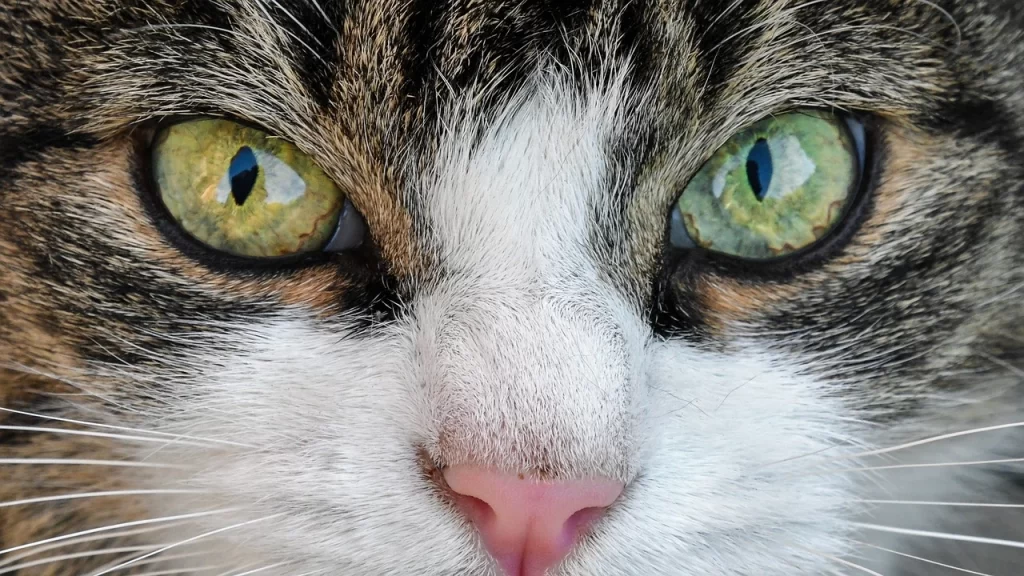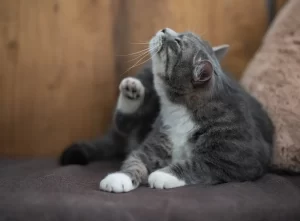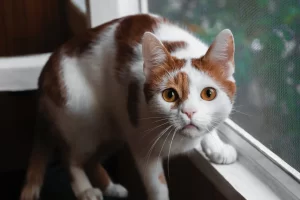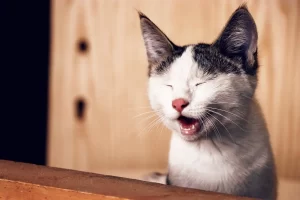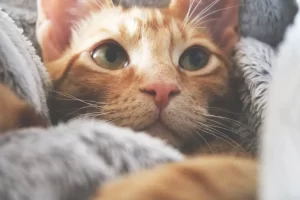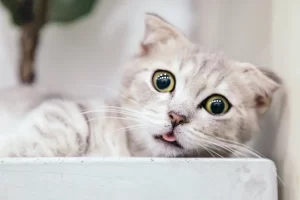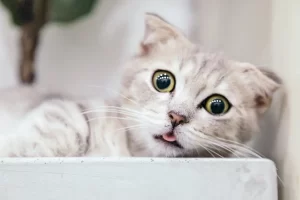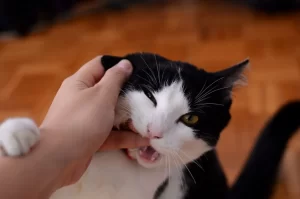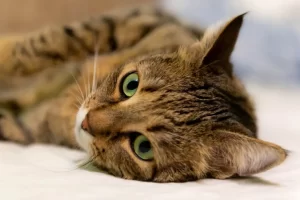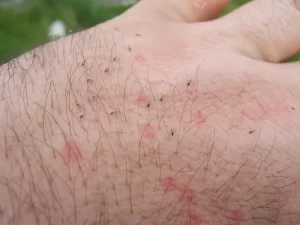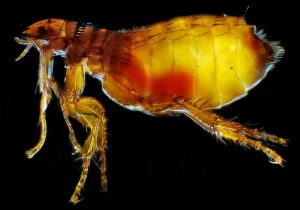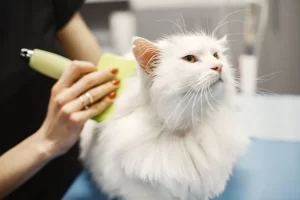Cat conjunctivitis is a common eye condition that can cause redness, swelling, discharge, and pain in the eyes of cats. While seeking veterinary care is always recommended for the best outcome, some pet owners may prefer to treat their cats with cat conjunctivitis home remedies. These remedies range from simple at-home treatments to over-the-counter medications and can offer a cost-effective and convenient way to manage the symptoms of conjunctivitis in cats. However, it’s important to understand the causes, symptoms, and potential side effects of these remedies to ensure the safety and well-being of your furry friend. In this article, we will cover the most important topics related to cat conjunctivitis, including home remedies, causes, symptoms, safe and effective treatments, potential side effects, and much more.
Table of Contents
ToggleWhat is cat conjunctivitis?
Cat conjunctivitis is an inflammation or infection of the conjunctiva, the transparent membrane that covers the whites of the eyes and the inside of the eyelids. It is a common condition in cats and can be caused by various factors such as bacteria, viruses, allergies, foreign objects, or irritants. Symptoms may include redness, swelling, discharge, squinting, and rubbing of the affected eye. If left untreated, conjunctivitis can lead to more serious eye problems and impact the cat’s overall health and well-being.
Causes of cat conjunctivitis
Cat conjunctivitis can be caused by several factors, including:
- Bacterial infections: Bacterial conjunctivitis is caused by the growth of harmful bacteria in the eye. Common culprits include Staphylococcus aureus and Streptococcus pneumonia.
- Viral infections: Viral conjunctivitis is caused by feline herpesvirus-1, feline calicivirus, and feline immunodeficiency virus. These viruses can cause a range of symptoms, including conjunctivitis, as well as other respiratory and neurological symptoms (see also the proper home treatments for feline herpes)
- Allergies: Conjunctivitis can be caused by an allergic reaction to pollen, dust mites, or other allergens. This type of conjunctivitis is often referred to as “allergic conjunctivitis.”
- Irritants: Exposure to environmental irritants such as smoke, chemicals, or air pollution can cause conjunctivitis.
- Foreign objects: Conjunctivitis can also be caused by foreign objects such as hair, dust, or dirt that gets into the eye.
- Trauma: Traumatic injuries to the eye can cause conjunctivitis, especially if the trauma leads to an infection.
- Eye conditions: Some underlying eye conditions, such as dry eye, entropion, and distichiasis, can increase the risk of conjunctivitis.
- Systemic conditions: Certain systemic conditions, such as autoimmune disorders, can lead to conjunctivitis.
- Parasites: Conjunctivitis can also be caused by parasites such as mites, fleas, and ticks. Check out our post on how to know if your cat has fleas or not.
It is important to seek veterinary care to determine the cause of conjunctivitis and to receive appropriate treatment.
Symptoms of cat conjunctivitis
The symptoms of cat conjunctivitis can vary depending on the underlying cause, but some common signs to look for include:
- Redness: The affected eye may appear red or bloodshot.
- Swelling: The conjunctiva may be swollen or puffy, causing the eye to look larger than normal.
- Discharge: A clear, yellow, or green discharge may be present in or around the affected eye.
- Squinting: The cat may squint or close the affected eye in an effort to relieve discomfort.
- Rubbing: The cat may rub or scratch the affected eye with its paw, which can worsen symptoms and lead to additional damage to the eye.
- Cloudiness: The eye may appear cloudy or hazy.
- Pain: The cat may show signs of pain or discomfort, such as crying or withdrawing from normal activities.
- Increased tearing: Increased tear production can also occur in response to conjunctivitis.
- Loss of appetite: The cat may lose its appetite or show decreased interest in food and water.
- Depression: The cat may seem lethargic or less active than usual. You may boost cats’ energy levels by using home treatments such as natural supplements, proper nutrition, and more.
If you suspect that your cat has conjunctivitis, it is important to seek veterinary care as soon as possible. Early treatment can help prevent more serious eye problems and improve the prognosis for your cat.
Importance of seeking veterinary care
Seeking veterinary care is important in the treatment of cat conjunctivitis for several reasons:
- Accurate diagnosis: A veterinarian can perform a thorough examination and diagnostic tests to determine the underlying cause of conjunctivitis and provide an accurate diagnosis.
- Appropriate treatment: Based on the diagnosis, a veterinarian can provide the appropriate treatment, which may include antibiotics, antivirals, anti-inflammatory medications, or other treatments as needed.
- Prevention of complications: Conjunctivitis can lead to serious eye problems such as corneal ulcers, scarring, and vision loss if left untreated. A veterinarian can provide the necessary treatment to prevent these and other complications.
- Monitoring for recurrence: Conjunctivitis can be a recurring condition, especially in cats with underlying health issues. A veterinarian can monitor your cat for recurrence and provide prompt treatment if needed.
- Protection of overall health: Conjunctivitis can also impact your cat’s overall health and well-being. A veterinarian can ensure that appropriate measures are taken to prevent the spread of infection and minimize the risk of secondary infections.
- Peace of mind: Seeking veterinary care can provide peace of mind and reassurance that your cat is receiving the best possible care for its condition.
Read more on How often should I take my cat to the vet?
Home remedies and treatments for cat conjunctivitis
It is important to seek veterinary care for cat conjunctivitis as some causes, such as viral infections, require specific medications and treatments. However, there are some safe and effective home remedies and treatments that can help manage the symptoms of conjunctivitis:
- Clean the eyes: Use a warm, damp cloth to gently clean any discharge or debris from the affected eye. Do not use water or other substances directly on the eye.
- Apply a warm compress: Place a warm, damp cloth over the affected eye for 10-15 minutes several times a day to help reduce redness and swelling.
- Increase humidity: Dry air can irritate the eyes and worsen conjunctivitis. Increase the humidity in the room by using a humidifier or placing a bowl of water near the cat’s bed.
- Avoid irritants: Keep the cat away from smoke, chemicals, and other environmental irritants that can worsen conjunctivitis.
- Provide a calm environment: Minimize stress and create a quiet, peaceful environment for the cat by following these natural remedies to help reduce discomfort and anxiety.
- Offer a balanced diet: Provide a well-balanced diet that includes essential nutrients and vitamins to support your cat’s overall health and eye health.
- Encourage hydration: Ensure that your cat has access to fresh water at all times and encourage hydration to help flush out toxins and prevent dehydration.
- Limit exposure to sunlight: Direct sunlight can irritate the eyes and worsen conjunctivitis. Limit your cat’s exposure to direct sunlight or provide shade when it is outside.
- Avoid eye ointments or drops without veterinary guidance: Some over-the-counter eye ointments and drops may cause more harm than good and should only be used under the guidance of a veterinarian.
- Keep the area around the eyes clean: Regularly clean the area around your cat’s eyes to prevent the buildup of debris and prevent secondary infections. Use a warm, damp cloth, and avoid using water or other substances directly on the eye.
- Provide a quiet place to rest: Give your cat a quiet, dark place to rest, such as a closed room or a covered cat bed, to help reduce stress and allow it to rest and heal.
- Avoid using human products: Avoid using human eye drops, ointments, or other products on your cat without veterinary guidance, as they can be toxic or cause an adverse reaction.
- Use a saline solution: A saline solution can help flush out any debris or discharge in the eye and promote healing. Consult with a veterinarian for instructions on how to prepare and use a saline solution for your cat.
- Keep the cat away from other animals: If your cat has a contagious form of conjunctivitis, keep it away from other cats and animals to prevent the spread of infection.
- Provide a clean living environment: Regularly clean your cat’s living area, litter box, and feeding dishes to prevent the buildup of bacteria and other contaminants that can contribute to conjunctivitis.
It is important to note that these home remedies are intended to provide symptom relief and should not be used as a substitute for veterinary care.
Diet, nutrition, and supplements for cats with conjunctivitis
A well-balanced and nutritious diet can be beneficial for maintaining your cat’s overall health and supporting its recovery from conjunctivitis. Here are some specific options to consider:
- Diet: Offer a well-balanced and nutrient-rich diet to your cat, such as high-quality commercial cat food that is appropriate for your cat’s life stage, size, and health status. This can help ensure that your cat is receiving all of the necessary nutrients for optimal health and support the immune system.
- Supplements: Omega-3 fatty acids, vitamin A, and lutein can be beneficial for supporting eye health and reducing inflammation. Omega-3 fatty acids can be found in certain types of fish, such as salmon, while vitamin A and lutein can be found in certain fruits, vegetables, and supplements. Talk to your veterinarian about the appropriate dose and type of supplements for your cat, as high doses of certain supplements can be toxic to cats.
- Antioxidants: Antioxidants, such as vitamins C and E, can help protect the eyes from damage and reduce inflammation. Antioxidants can be found in certain fruits and vegetables, such as berries, and can also be found in certain supplements.
- Amino acids: Some amino acids, such as taurine, are important for maintaining eye health and overall health. Taurine can be found in certain high-quality cat foods or as a supplement. A taurine deficiency can lead to serious health issues in cats, so it is important to ensure that your cat is receiving adequate amounts.
- Probiotics: Probiotics can help maintain a healthy gut and support the immune system, which can be beneficial for cats with conjunctivitis. Probiotics can be found in certain types of cat food, such as those formulated for digestive health, or as a supplement.
It is important to note that dietary changes and supplementation should only be made under the guidance of a veterinarian, as different cats may have unique nutritional needs and some supplements can interact with other medications your cat is taking. It is also important to make changes gradually to prevent digestive upset and monitor your cat’s response to any changes.
The use of essential oils for cat conjunctivitis
The use of essential oils for treating cat conjunctivitis is a controversial topic, as essential oils can be toxic to cats if used improperly. Here are some things to consider:
- Safety: Essential oils can be toxic to cats if ingested or applied directly to their skin, as cats lack the necessary enzymes to break down certain compounds found in essential oils. It is important to always dilute essential oils before use and never apply them directly to your cat’s skin.
- Dilution: Essential oils should be diluted before use, typically with a carrier oil such as coconut oil, to reduce the risk of toxicity. The appropriate dilution ratio depends on the type of essential oil and the size of your cat, so it is important to consult with a veterinarian before using essential oils.
- Application: Essential oils can be used topically, but should never be applied directly to the eyes. They can also be diffused into the air or added to your cat’s bedding or toys.
- Effectiveness: There is limited scientific evidence to support the effectiveness of essential oils for treating cat conjunctivitis, and some essential oils may actually irritate the eyes and worsen symptoms.
Some popular essential oils used for cat conjunctivitis include:
- Lavender oil: Lavender oil is known for its soothing and anti-inflammatory properties.
- Tea tree oil: Tea tree oil has antiseptic, anti-inflammatory, and antimicrobial properties.
- Roman chamomile oil: Roman chamomile oil is known for its soothing and anti-inflammatory properties.
- Lemon oil: Lemon oil is high in antioxidants and has anti-inflammatory and antimicrobial properties.
- Frankincense oil: Frankincense oil has anti-inflammatory, antimicrobial, and astringent properties.
It is important to consult with a veterinarian before using essential oils for treating cat conjunctivitis, as some essential oils may interact with other medications your cat is taking or have contraindications with certain health conditions.

Herbal remedies for cat conjunctivitis
The use of herbal remedies for treating cat conjunctivitis is a controversial topic, as there is limited scientific evidence to support the effectiveness of many herbal remedies and some can be toxic to cats if used improperly. Here are some things to consider:
- Safety: Some herbs can be toxic to cats, so it is important to consult with a veterinarian before using herbal remedies. Some herbs may also interact with other medications your cat is taking, so it is important to be aware of any potential contraindications.
- Effectiveness: There is limited scientific evidence to support the effectiveness of most herbal remedies for treating cat conjunctivitis, and some may even irritate the eyes and worsen symptoms.
- Dosage: The appropriate dosage of herbal remedies depends on the type of herb, the size of your cat, and other factors, so it is important to consult with a veterinarian before using herbal remedies.
- Preparation: Herbs can be used in various forms, such as teas, tinctures, or topical applications. The appropriate form of the herb and preparation method depends on the type of herb, the intended use, and other factors, so it is important to consult with a veterinarian before using herbal remedies.
Here are some of the most commonly recommended herbs for cat conjunctivitis:
- Calendula: Calendula is believed to have anti-inflammatory and antiseptic properties, and has been used to treat various eye conditions in cats, including conjunctivitis.
- Chamomile: Chamomile is known for its calming properties and has been used to treat eye irritation and inflammation in cats.
- Golden Seal: Golden seal is believed to have anti-inflammatory, antibacterial, and antiviral properties, and has been used to treat various eye conditions in cats, including conjunctivitis.
- Eyebright: Eyebright is believed to have anti-inflammatory and astringent properties, and has been used to treat various eye conditions in cats, including conjunctivitis.
Potential side effects of home remedies for cat conjunctivitis
Using home remedies to treat cat conjunctivitis may have potential side effects, including:
- Irritation: Some home remedies may irritate the eyes and worsen symptoms.
- Allergic reactions: Some cats may have an allergic reaction to certain ingredients in home remedies, leading to further eye irritation or other symptoms.
- Overuse: Overusing home remedies may cause eye irritation or dryness, and can also lead to secondary infections.
- Interactions with other medications: Home remedies may interact with other medications your cat is taking, leading to adverse side effects or reduced effectiveness.
- Toxicity: Some home remedies may contain ingredients that are toxic to cats, especially if used in large quantities or for an extended period of time.
- Delaying proper treatment: Using home remedies for cat conjunctivitis may delay proper treatment and allow the condition to worsen.
The long-term outlook for cats with conjunctivitis
The long-term outlook for cats with conjunctivitis depends on the underlying cause and promptness of diagnosis and treatment. If left untreated, conjunctivitis can progress and lead to a number of complications, including:
- Chronic eye inflammation: Prolonged conjunctivitis can result in chronic eye inflammation, which can cause further discomfort, eye pain, and vision problems.
- Corneal damage: Chronic conjunctivitis can lead to corneal damage, which can cause scarring and vision problems. In severe cases, corneal damage can result in blindness.
- Secondary infections: Chronic conjunctivitis can make the eyes more susceptible to secondary infections, which can cause further eye pain, redness, and vision problems.
- Vision problems: Prolonged conjunctivitis can lead to vision problems, including vision loss, especially if left untreated.
- Decreased quality of life: Chronic conjunctivitis can cause discomfort and decreased quality of life for your cat.
In many cases, with prompt and appropriate treatment, cats with conjunctivitis can fully recover and have a normal long-term outlook. Treatment may include medications, topical ointments, and/or surgery in severe cases.
Preventative measures for cat conjunctivitis
There are several preventative measures that can be taken to reduce the risk of cat conjunctivitis:
- Keep the eyes clean: Regularly clean your cat’s eyes to remove any discharge or debris that may irritate the eyes or contribute to infection.
- Minimize exposure to irritants: Reduce your cat’s exposure to potential irritants, such as dust, smoke, and harsh chemicals.
- Maintain good hygiene: Practice good hygiene to reduce the risk of infection, including washing your hands frequently and cleaning or managing any wounds promptly (for example by using natural antibiotics at home).
- Keep up with vaccinations: Regular vaccination can help protect against some of the viral causes of conjunctivitis.
- Avoid overcrowding: Overcrowding and close contact with other cats can increase the risk of spreading infections.
- Monitor for signs of eye problems: Regularly monitor your cat’s eyes for any signs of redness, swelling, discharge, or discomfort, and seek veterinary care if any symptoms are noticed.
- Maintain a healthy diet: A balanced diet and regular exercise can help boost your cat’s immune system and reduce the risk of infections.
Medications and over-the-counter medicines
Medications and over-the-counter (OTC) medicines are commonly used to treat cat conjunctivitis.
Medications:
Depending on the underlying cause of conjunctivitis, your veterinarian may prescribe the following medications:
- Antibiotics to treat bacterial conjunctivitis
- Antiviral drugs to treat viral conjunctivitis
- Topical or oral corticosteroids to reduce inflammation
- Lubricating eye drops to relieve dryness and discomfort
It is important to only use medications for cat conjunctivitis under the direction and supervision of a veterinarian, as improper use can harm your cat and delay recovery.
Over-the-counter medicines:
Some commonly recommended OTC medicines for cat conjunctivitis include:
- Artificial tear eye drops or gels to relieve dryness and discomfort
- Eye wipes to clean away discharge and debris from the eye
However, it is important to consult your veterinarian before using any OTC products on your cat, as some products may be toxic or interfere with prescribed medications.
The role of vaccines in preventing conjunctivitis in cats
Vaccination can play a role in preventing conjunctivitis in cats, particularly in cases where the condition is caused by viral infections such as feline herpesvirus (FHV-1) and feline calicivirus (FCV). The following are the recommended vaccines and schedules for cats to reduce the risk of developing conjunctivitis:
- Feline herpesvirus (FHV-1) vaccine: This vaccine is usually given as an initial series of two injections, with a booster shot given annually or every three years, depending on your veterinarian’s recommendations.
- Feline calicivirus (FCV) vaccine: This vaccine is usually given as an initial series of two injections, with a booster shot given annually or every three years, depending on your veterinarian’s recommendations. If for any reason your cat cannot get this vaccine, you may want to look into these home treatments for calicivirus.
It is important to note that vaccines do not guarantee complete protection from these viruses, and some cats may still develop conjunctivitis even after vaccination. Additionally, vaccines do not protect against other causes of conjunctivitis, such as bacterial infections, allergies, and irritants. Regular veterinary check-ups and eye exams can help detect the early signs of conjunctivitis and prevent the condition from becoming more serious.
Does cat conjunctivitis depend on the cat’s gender, breed, or age?
Yes, the likelihood of a cat developing conjunctivitis can depend on several factors, including gender, breed, and age. Some breeds of cats, such as Persian cats, have a higher risk of developing eye conditions due to their facial conformation and eye shape. Female cats may also have a higher risk of developing conjunctivitis due to hormonal changes associated with their estrous cycle.
Kittens and older cats are also at an increased risk of developing conjunctivitis due to a weakened immune system, and age-related changes in the eyes. Additionally, certain environmental factors, such as exposure to irritants and allergens, may increase the risk of developing conjunctivitis in cats of all ages and breeds.
Which vet to visit with what expertise?
If your cat is experiencing symptoms of conjunctivitis, it is recommended to visit a veterinarian for proper diagnosis and treatment.
For the best outcome, it is ideal to see a veterinarian with expertise in feline ophthalmology, who is specifically trained in the diagnosis and treatment of eye conditions in cats. An ophthalmologist has the knowledge and experience to properly diagnose and treat a wide range of eye conditions, including conjunctivitis.
If there is not a specialist in feline ophthalmology available, you can also visit a general practitioner veterinarian for an initial evaluation. The general practitioner can then refer you to a specialist if needed, or provide appropriate treatment for conjunctivitis if it is a straightforward case.

